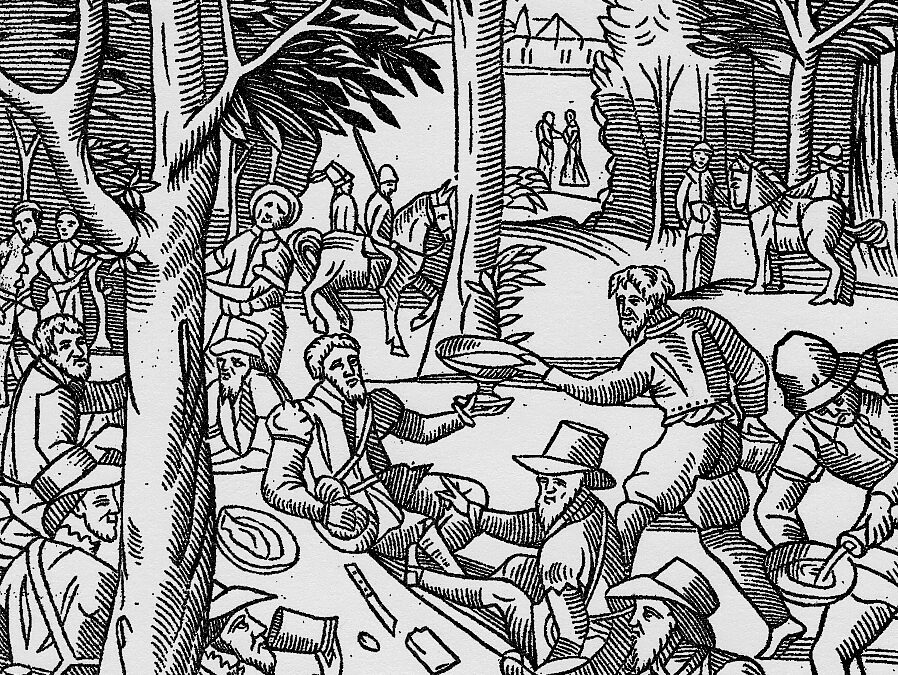 Fouilloux’s La Venerie, aka Hunting, differs from Gaston’s 1389 description (See Le livre de chasse). Accordingly, the assemblée is replaced with un repas chasse, a hunters’ lunch attended only by men. However, when George Gascoigne adapted La...
Fouilloux’s La Venerie, aka Hunting, differs from Gaston’s 1389 description (See Le livre de chasse). Accordingly, the assemblée is replaced with un repas chasse, a hunters’ lunch attended only by men. However, when George Gascoigne adapted La...
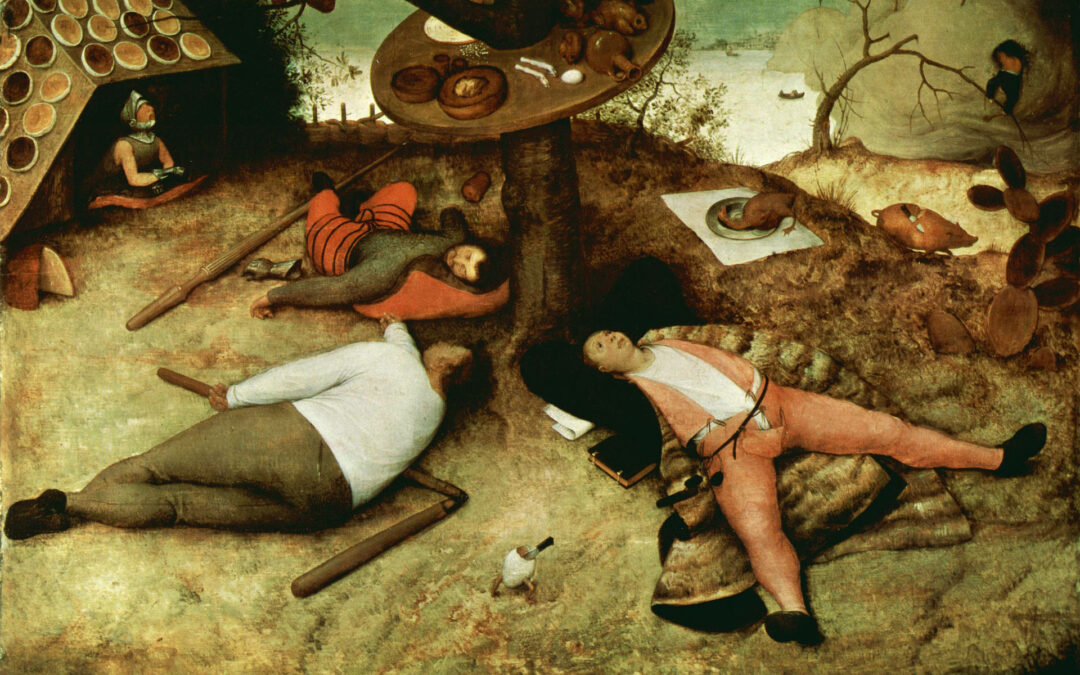 Bruegel the Elder’s The Land of Cockaigne, aka Het Luilekkerland, makes you think it’s a picnic. Not. It’s a satirical look at Cockaigne, a mythical place where it’s always spring and never winter, in which life is all play and no work,...
Bruegel the Elder’s The Land of Cockaigne, aka Het Luilekkerland, makes you think it’s a picnic. Not. It’s a satirical look at Cockaigne, a mythical place where it’s always spring and never winter, in which life is all play and no work,...
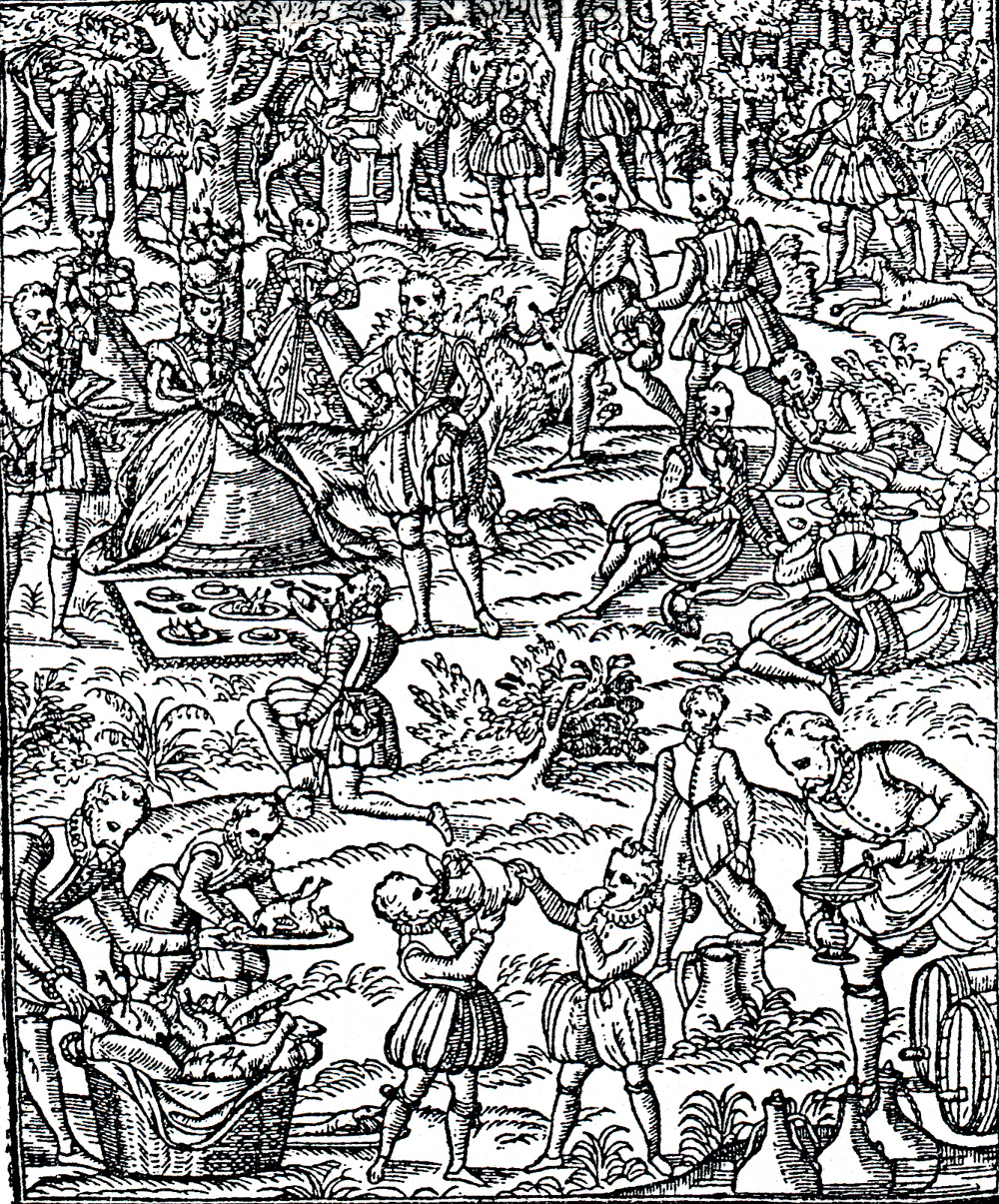 Gascoigne adapted Gaston Phébus’s The Book of the Hunt (1380) and Jacques du Fouilloux’s in La Venerie (1560) into English, retitling the work The Noble Arte of Venerie or Hunting (1575). (The book is dedicated to Lord Clinton, Elizabeth’s master of...
Gascoigne adapted Gaston Phébus’s The Book of the Hunt (1380) and Jacques du Fouilloux’s in La Venerie (1560) into English, retitling the work The Noble Arte of Venerie or Hunting (1575). (The book is dedicated to Lord Clinton, Elizabeth’s master of...
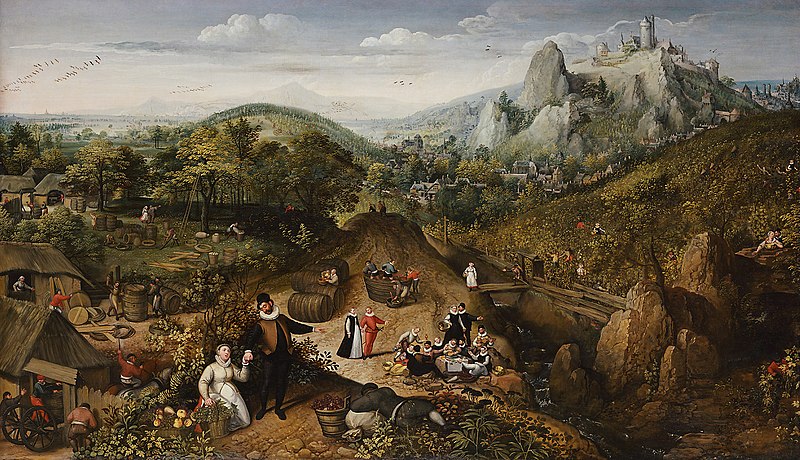 Valckenborch must have loved dining, food, and wine. His paintings are filled with depictions of meats, fish, and fruits, so he might be called a painter of feasting. His calendar paintings, such as the one celebrating October’s bountiful grape harvest, include an...
Valckenborch must have loved dining, food, and wine. His paintings are filled with depictions of meats, fish, and fruits, so he might be called a painter of feasting. His calendar paintings, such as the one celebrating October’s bountiful grape harvest, include an...
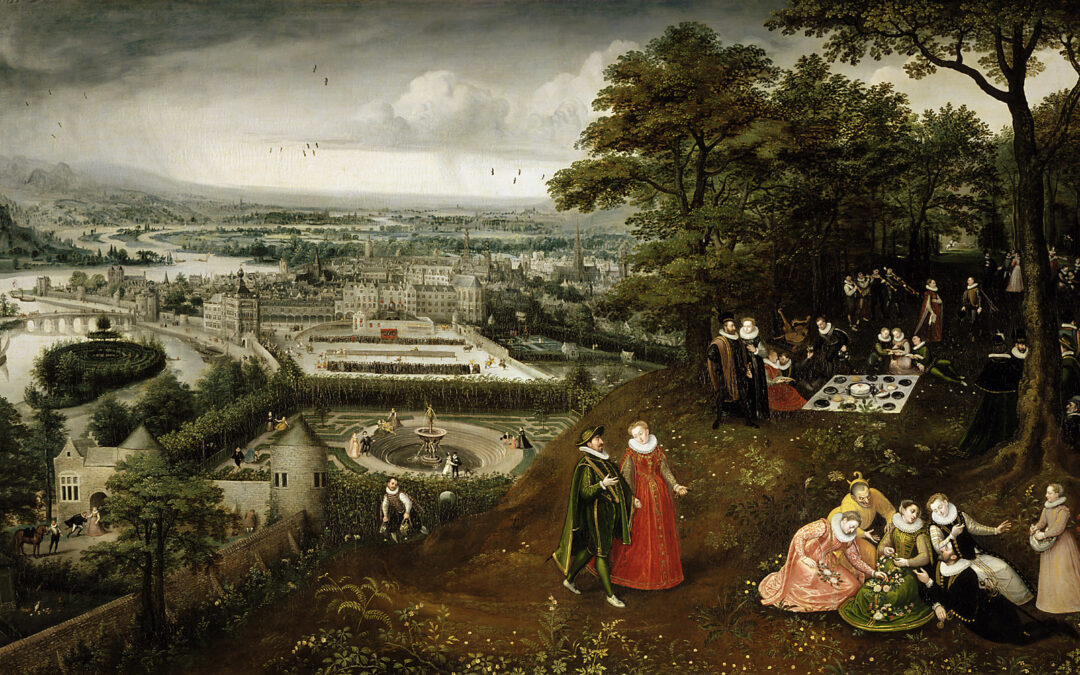 Valckenborch’s Spring, aka Frühlingslandschaft (Mai), depicts the new season arousing a desire for revelry after winter’s confinement. It’s part of a series of calendar paintings celebrating the months of the year and appropriate seasonal activities. Though, in this...
Valckenborch’s Spring, aka Frühlingslandschaft (Mai), depicts the new season arousing a desire for revelry after winter’s confinement. It’s part of a series of calendar paintings celebrating the months of the year and appropriate seasonal activities. Though, in this...
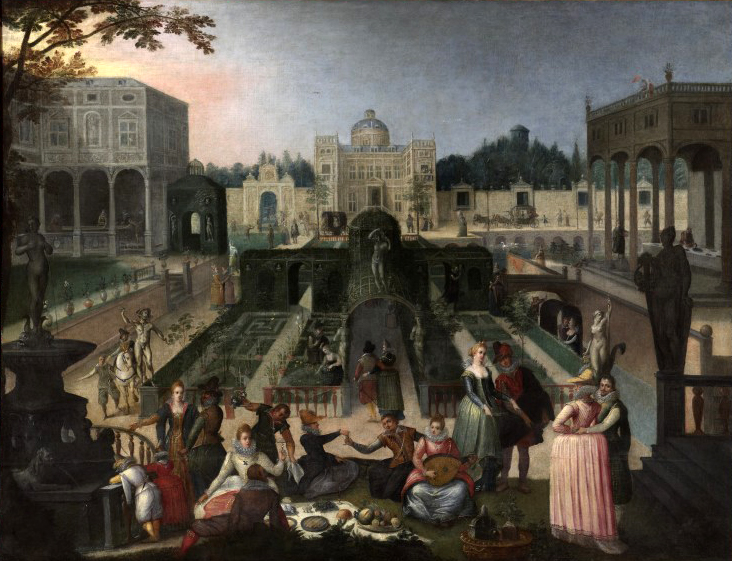 Feast In The Park Of The Duke Of Mantua or Fête dans le Jardin du Duc de Mantoue is picnicky but not a feast. The curators of the Musée des Beaux-Arts probably assign the title. It is a garden of lovers dining alfresco in an imaginary architectural setting. The...
Feast In The Park Of The Duke Of Mantua or Fête dans le Jardin du Duc de Mantoue is picnicky but not a feast. The curators of the Musée des Beaux-Arts probably assign the title. It is a garden of lovers dining alfresco in an imaginary architectural setting. The...
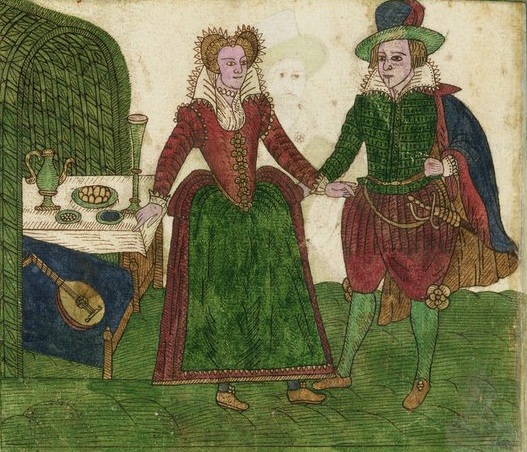 Trevelyon’s Miscellany is a meticulously illustrated compendium of 1608. It’s stocked with a calendar, scenes from the Bible, current events, court, political figures, costumes, fabric designs, games, dances, etc. It’s among the marvels of bookcraft...
Trevelyon’s Miscellany is a meticulously illustrated compendium of 1608. It’s stocked with a calendar, scenes from the Bible, current events, court, political figures, costumes, fabric designs, games, dances, etc. It’s among the marvels of bookcraft...
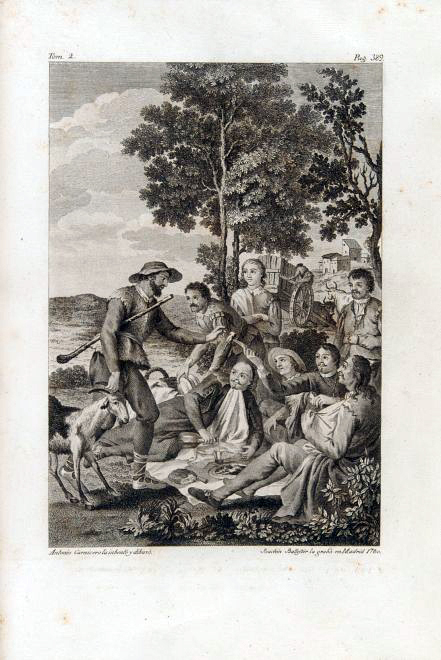 Cervantes’s merienda looks like a picnic on the grass. It occurs while, Don Quixote and Sancho engage in a spirited discussion of the uses of enchantment and the power of imagination with the Canon, the curate, and the barber. They sit on the grass waiting for...
Cervantes’s merienda looks like a picnic on the grass. It occurs while, Don Quixote and Sancho engage in a spirited discussion of the uses of enchantment and the power of imagination with the Canon, the curate, and the barber. They sit on the grass waiting for...
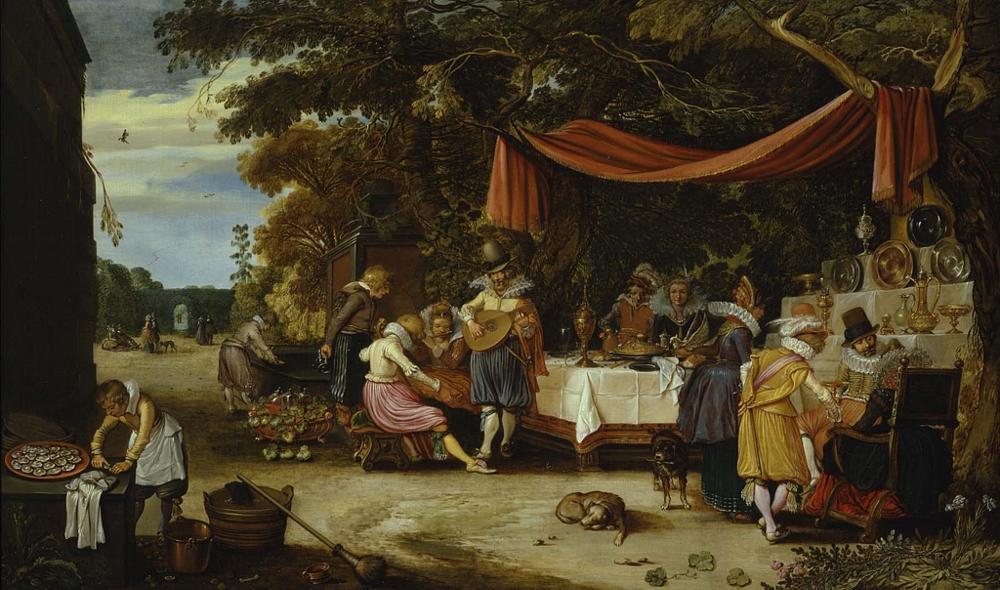 Van de Velde’s reputation is now based on his naturalistic landscape. But he was in demand among the affluent Amsterdam community, for whom he painted many scenes of their parties, especially garden parties, of which An Elegant Company in a Garden is an exemplar. The...
Van de Velde’s reputation is now based on his naturalistic landscape. But he was in demand among the affluent Amsterdam community, for whom he painted many scenes of their parties, especially garden parties, of which An Elegant Company in a Garden is an exemplar. The...
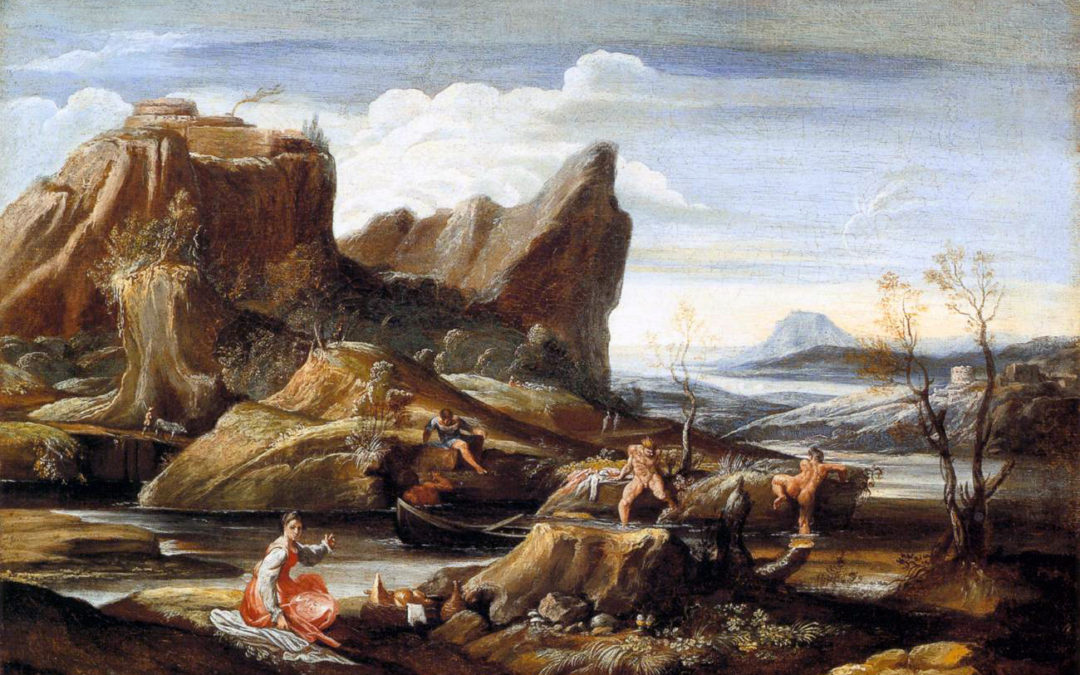 Though it is unmistakably a merienda at the beach, the title given for this painting in the Pitti Palace is Landscape with Bathers. The seashore is a tumultuous blend of barren, jutting rocks. But Carracci, the focus of which is a serene woman dressed in red sitting...
Though it is unmistakably a merienda at the beach, the title given for this painting in the Pitti Palace is Landscape with Bathers. The seashore is a tumultuous blend of barren, jutting rocks. But Carracci, the focus of which is a serene woman dressed in red sitting...











